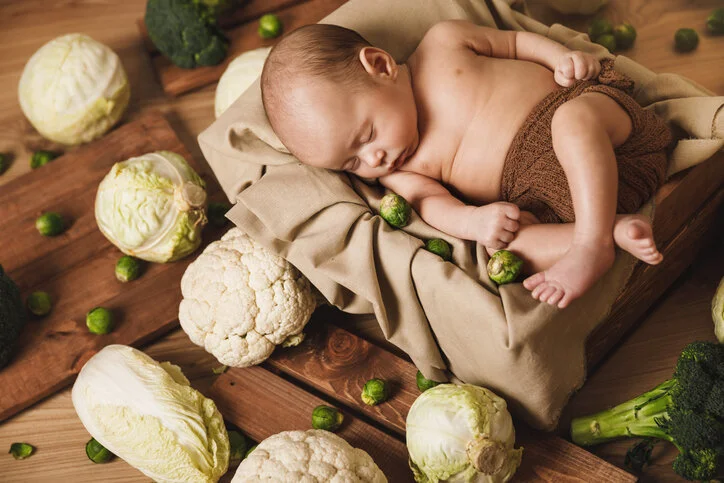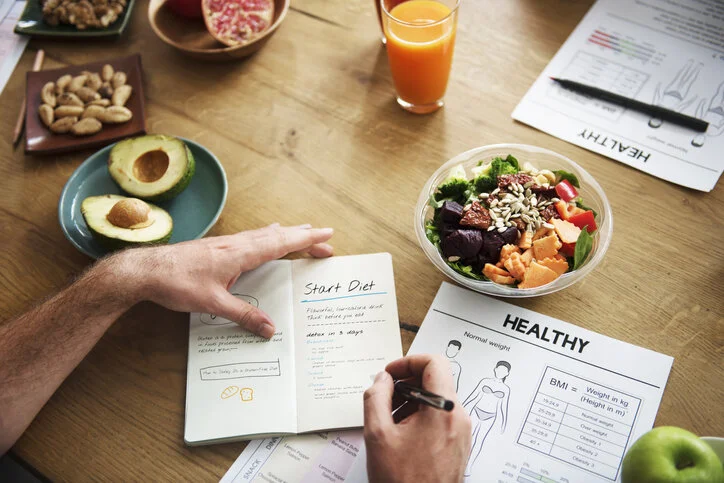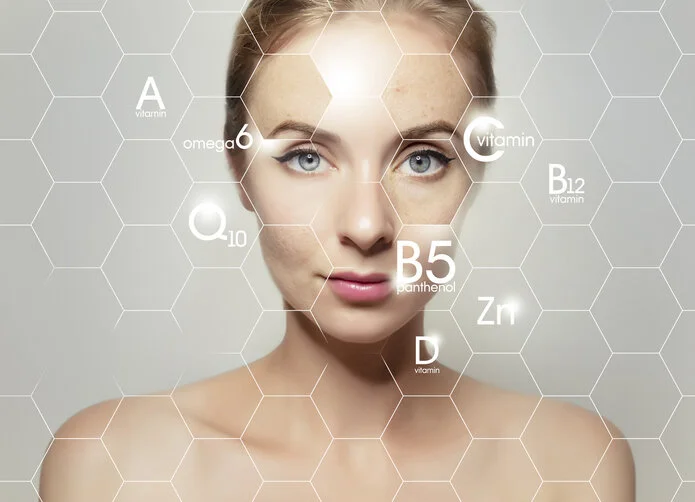The Vegan Diet and Infant Health and Well-being
Disclaimer
I believe that as long as one’s diet has all of the absorbable nutrients in it, it can be healthy and beneficial, although it may not be optimal. This post is not anti-vegan or pro-vegan. It is not intended to diagnose or treat any ailments. I am not suggesting you make any changes to your food choices, whether you are vegan or not. If you have any questions about your diet, seek the appropriate advice from a licensed professional.
Vegan Diet Under Fire For Harming Babies and Infants
There have been several news reports in the past few years of parents getting into legal trouble due to their infant children becoming ill after being fed strict vegan diets. Many regard vegan diets as very healthy. It is, therefore, no surprise when the general public gets confused by such reports. Having a background in functional medicine, I am aware that a strict vegan diet contains no vitamin B-12, Vitamin D, or long-chain omega-3 fatty acids. Other nutrients are much less available from a vegan diet. Since growing infants and children require more nutrient building blocks, I am not surprised by rapidly degenerating health outcomes for infants fed a vegan diet when done improperly WITHOUT SUPPLEMENTATION.
What Exactly is a Vegan?
According to The Vegan Society, “Veganism is a way of living which seeks to exclude, as far as is possible and practicable, all forms of exploitation of, and cruelty to, animals for food, clothing or any other purpose.” They state on their site that “There are many ways to embrace vegan living. Yet one thing all vegans have in common is a plant-based diet avoiding all animal foods such as meat (including fish, shellfish, and insects), dairy, eggs, and honey - as well as avoiding animal-derived materials, products tested on animals and places that use animals for entertainment.” You can see from their definition that the primary goal is admirable, but not related to health and wellness. (1) Also, let’s not confuse vegetarians with vegans. Vegetarians usually eat eggs and consume dairy. They get nutrients from animals and are restrictive omnivores, not vegans.
Is Veganism a Better Diet?
There are no well-done functional studies comparing vegans to other restrictive diets. I found one called “Comparison of Nutritional Quality of the Vegan, Vegetarian, Semi-Vegetarian, Pesco-Vegetarian and Omnivorous Diet.” You can read the study here; therefore, I won’t get into the substantial details. It makes veganism appear to be the best of them all, but it has many shortcomings. It used a food frequency questionnaire that had the subjects fill out a questionnaire and state what they ate for the previous year. How accurate can that be? They then created the various diet category groups based on the answers. Then they gave the highest marks for how closely the subjects adhered to The Healthy Eating Index (HEI), which represents the degree to which a dietary pattern conforms the official guidelines summarized in the United States Department of Agriculture Food Guide Pyramid (now My Plate). This paper concludes that vegans are closest to the food pyramid recommendations; therefore, it is the best diet. The food pyramid has proven to be a disaster for Americans. You can read my post on the food pyramid here. A great deal of diet confusion stems from the fact that most healthcare practitioners and the general public alike erroneously believe that avoiding saturated fat, cholesterol, and red meat will lead to healthier outcomes.
Skirting The Issue
When I searched the internet for clarification on some of the recent lawsuits, I encountered more pro-vegan sites than not. A common claim is that “ Well-planned vegetarian diets are appropriate for individuals during all stages of the life cycle, including pregnancy, lactation, infancy, childhood, and adolescence, and for athletes.” I believe this claim is invalid because either the suggestion is to eat a vegetarian diet instead of a vegan diet (admitting a vegan diet is inappropriate), or they ignored the fact that the parents in legal jeopardy were vegans, not vegetarians.
Well Planned Vegan Diets Require Supplements
I did find an article Journal of the American Dietetic Association called “Considerations in planning vegan diets: children.” by Messina and Mangels. They stated “Dietetics professionals who counsel vegan families should help parents identify good sources of vitamin B-12, riboflavin, zinc, calcium and, if sun exposure is not adequate, vitamin D. This should not be problematic, due to the growing number and availability of fortified vegan foods that can help children meet all nutrient needs. Therefore, with appropriate food choices, vegan diets can be adequate for children at all ages.” They recommend “good sources” of vitamin B-12 etc. There are no plant sources of B-12, so they are recommending supplements. They also claim that “fortified vegan food” will make it easier. Fortified foods are foods with supplements added to them. (2) The dose of B12 in a supplement needs to be 100 times higher than the RDA of 2.4 μg/day to be effective (approximately 250 μg/ day), and that in deficiency states, it should be 200 times higher (approximately 500 μg/day). (3)
In his paper entitled “Health effects of vegan diets,” Dr. Craig states,” eliminating all animal products from the diet increases the risk of certain nutritional deficiencies. Micronutrients of special concern for the vegan include vitamins B-12 and D, calcium, and long-chain n-3 (omega-3) fatty acids. Unless vegans regularly consume foods that are fortified with these nutrients, appropriate supplements should be consumed. In some cases, iron and zinc status of vegans may also be of concern because of the limited bioavailability of these minerals.” There is evidence that supplementation with B-12 may not mitigate the risk of injury to a developing fetus or child. (4)
The Vegan Society site has many resources on it. When I looked at their nutrients page, they suggest the following workarounds:
· Iodine: The Vegan Society markets a daily vitamin and mineral supplement designed for vegans called VEG 1
· Calcium: Calcium-set tofu, calcium-fortified milk, and yogurt alternatives and soy and linseed bread fortified with extra calcium are particularly good sources of this nutrient.
· B-12: Vitamin B12 is added to some alternatives to milk products, vegan spreads, nutritional yeast flakes, yeast extracts, and breakfast cereals. Supplements: take either at least 10mcg daily or at least 2000mcg weekly
· Vitamin D: Supplements
Potentially Misleading Advice Given By The Vegan Society
I was disappointed by the claim on their site that beta-carotene is equivalent to vitamin A. This is far from truthful and can lead to unfortunate health consequences. Up to 50% of adults can’t convert any beta-carotene into vitamin A, and no infant can. THE PREVIOUS FACT ALONE CAN ACCOUNT FOR THE LAWSUITS AGAINST PARENTS WHO FEED THEIR INFANTS A VEGAN DIET, since vitamin A is critical for proper development. You can get the details from my previous post on vitamin A here. The information on attaining adequate levels of essential fats is also misleading. Since only 5% of dietary fats from vegetables make the conversion to the form humans use, health problems can arise. (5)
It’s All About Nutrients
Lest you think I am against veganism, I want to remind you that the average western diet is generally terrible for one’s health. There have been several instances where the state has intervened on behalf of non-vegan children whose health has been compromised by their parents' limited knowledge of nutrition.
Child Abuse
The federal government’s definition of child abuse and neglect is as follows:
“Any recent act or failure to act on the part of a parent or caretaker which results in death, serious physical or emotional harm, sexual abuse or exploitation”; or
“An act or failure to act which presents an imminent risk of serious harm.” (6)
The state has the right to intervene in many cases, most of which are not for dietary reasons. Most parents will take their children to the doctor if they appear sick and lethargic. Some parents will ignore illnesses in their children to the point where their lives are in jeopardy. It pains me to think that children are dying needlessly from malnourishment in a day and age where good quality food is so abundant.
Conclusion
As I stated at the beginning of this post, I believe that as long as one’s diet has a complete complement or readily absorbable nutrients in it, it can be healthy and beneficial, although it may not be optimal. In my opinion, any diet plan that chronically deprives you of nutrients unless you take supplements poses a risk, including the standard American diet. The reason is that those who adhere to a limiting cuisine must be thoroughly knowledgeable about precisely what supplements to consume, and have their nutrient status monitored by professionals lest grave health consequences ensue. I have had numerous patients that have adapted vegan diets without knowing that supplements are needed who have suffered from oral disease as a result, including severe gingivitis and rampant tooth decay. I am not sure of what percentage of vegans are aware that supplements are required to maintain health status, but many are not. I have way more patients with the same (and worse) problems who eat a standard diet. Whatever style of eating you choose, I recommend consuming a wide variety of nutrient-dense whole foods (animal and vegetable) that minimizes processed carbs as the basis of any diet. For more on the subject, read my previous post here.







